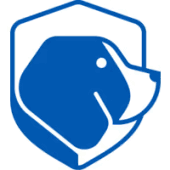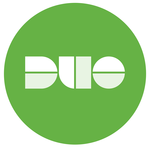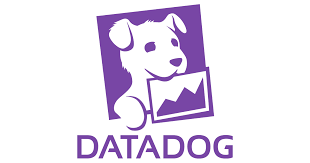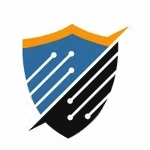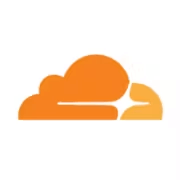What Is Website Security Software?
Website Security Software is a strong tool that keeps websites safe from a wide range of online threats, such malware, hackers, and other bad attacks. It works by putting in place security measures that stop those who shouldn't be able to access the website and protect private information that is stored there.
If you own a website, whether it's a tiny business site, a personal blog, or a big e-commerce site, you need this kind of software. The hazards that websites confront change as the internet does. Websites can be attacked if they don't have the right security measures in place. This can lead to loss of data, damage to reputation, and money loss.
Website Security Software has a lot of tools and features that protect websites and the information of their visitors. These could be things like scanning for and removing malware, protecting your computer with a firewall, encrypting your data with SSL, protecting against DDoS attacks, making regular backups, and more. This software can find and stop possible threats before they can do any damage by keeping an eye on the website and its traffic.
When picking a Website Security Software, it's important to think about what your website requires and wants. Some software is better for small firms, while others have more advanced capabilities that are better for big businesses. It is also important to choose interfaces that are easy to use, customer service that is quick and helpful, and integration that works well with your website.
Website security software is not only a way to keep your site safe from possible dangers, but it is also a way to develop trust with your audience. As cybercrime becomes more common, people who browse websites are becoming more careful about how safe the sites they visit are.
You may convince your visitors that their data is safe and get them to interact with your website by showing trust seals and security badges from these programs.
What Are the Recent Trends in Website Security Software?
The growth in cyberattacks and data leaks has made it clear how important it is to have strong website security. Because of this, website security software is always getting better to keep up with the new ways that hackers are using to attack.
This buyer's guide will help you make an informed choice for your business by talking about the latest trends in website security software.
1. AI and machine learning : Artificial Intelligence (AI) and Machine Learning (ML) are changing the way websites are protected. These technologies let security software find and fix possible threats before they happen. AI and ML can find and stop bad activity in real time by looking at patterns and behaviors in data. This adds another layer of security to your website.
2. Security in the Cloud: As cloud services become more prevalent, so does website security. Compared to traditional on-premise security systems, cloud-based security is more scalable, flexible, and cost-effective. It also makes it easier to get updates quickly and find threats in real time, which makes it a great solution for enterprises of all sizes.
3. Information about threats: Threat intelligence is an important part of modern website security software. It means getting knowledge about possible dangers and attacks, such new viruses and phishing techniques. Website security software can use this information to protect against known risks and stop possible assaults before they happen.
4. Analytics of User Behavior: Another new trend in website security software is User Behavior Analytics (UBA). This device keeps track of and analyzes what users do to find unusual behavior that could mean a security breach. For instance, it may tell when someone is trying to access a user's account from a different device or location and mark it as a possible threat.
5. Authentication : Using more than one factor Using a password alone to protect a website is no longer enough. To get into their accounts, users must supply other credentials, like a one-time code or biometric data. This is called multi-factor authentication (MFA).
This trend has picked up speed in website security since it greatly lowers the risk of unwanted access.
Benefits of Using Website Security Software
To keep your website safe from hackers, viruses, and other cyber threats, you need website security software. It works by finding and blocking any unwanted access, keeping an eye out for possible weaknesses, and sending real-time alerts when a security breach happens. Website security software has a lot of benefits, thus it is a must-have for any website owner.
Here are some of the main benefits:
1. Protects Against Cyber Attacks: There are more and more cyber risks, thus it's important to have strong security measures in place. Website security software protects your site from hacking, DDoS attacks, and other bad actions, keeping it safe and sound.
2. Protects Private Information: Hackers are more likely to target your website if it collects and maintains private information like personal information, credit card numbers, or login information. Website security software protects this information from being accessed by people who shouldn't have it by using encryption and other security measures.
3. Increases the Trustworthiness of Your Website: A secure website gives visitors and customers peace of mind that their information is safe. This can help your website look more trustworthy and your brand's reputation, which will make customers more loyal and trust you more.
4. Keeps the website running: Hackers commonly utilize DDoS assaults to bring down websites, which costs money and time. Website security software can find and stop these kinds of threats, which keeps your website up and operating, keeps its performance high, and protects its reputation.
5. Saves Time and Money: Fixing a security breach can take a lot of time and money. You can stop any dangers before they do any damage using website security software. This will save you time and money in the long run.
6. Following Industry Standards: To protect client data, several industries have specific security rules that websites must follow. You may achieve these criteria and avoid fines or legal trouble with the help of website security software.
7. Security Solutions That Can Be Changed: Website security software lets you change your security measures to fit the needs of your website and your industry. This adaptability makes sure that your website and its particular weaknesses are as safe as possible.
Important Factors to Consider While Purchasing Website Security Software?
There are a few crucial things that every customer should think about before buying website security software. The security of your website is very important in today's digital world, when cyber threats are growing more common and advanced. So, it's very important to use the correct security software to keep your website and its data safe.
Here are some important things to think about while buying website security software to help you make an informed choice:
1. Type of Security Measures: The first thing to think about is what kind of security the software offers. To make sure your website is fully protected, look for features like anti-malware, firewall protection, vulnerability scanners, and encryption.
2. Compatibility: Make sure that the security software you chose works with the platform your website is built on. Before you buy, be sure that the software will function with the platform you want to use it on.
3. User-Friendliness: The program should be straightforward to use and navigate, especially for people who don't know much about technology. A convoluted and confusing UI will only make your job harder and could lead to mistakes that leave your website open to attack.
4. Scalability: Your security demands will expand as your website does. So, it's crucial to pick software that can grow with your website without putting its security at risk.
5. Reputation and Reviews: Look into the software's reputation and see what other people have said about it. This will help you figure out how well it works and how safe it is for websites.
6. Customer help: You want to be sure that the software provider has good and quick customer help in case you have any problems or questions. If you need help with something technological, look for choices like live chat, email, or phone support.
7. Cost: The price of website security software changes based on the features and amount of protection it offers. You need to strike a balance between cost and security that works for your website's demands and size.
You can make a smart choice when buying website security software if you think about these things. Keep in mind that buying good security software is an important step in keeping your website safe from possible cyber assaults.
What Are the Key Features to Look for in Website Security Software?
When it comes to keeping your website safe, buying good Website Security Software is quite important. As cyber dangers grow, organizations need to protect their online presence more than ever. But there are so many choices on the market that it can be hard for purchasers to find the one that works best for them.
We have made a list of important things to look for in Website Security Software to assist you make an informed choice.
1. Finding and getting rid of malware: One of the most important things to look for in website security software is its capacity to find and get rid of malware. Malware assaults can steal important information, get into your website's data, and affect the overall security of your site. Check that the program you chose can search for malware regularly, watch your computer in real time, and remove spyware automatically.
2. SSL Encryption: Any website that collects personal or financial information from its visitors needs to employ Secure Sockets Layer (SSL) encryption. SSL encryption makes sure that the information sent between the web server and the web browser stays private and safe. Find website security software that lets you use HTTPS and gives you SSL certificates.
3. Web Application Firewall (WAF): A Web Application Firewall (WAF) is very important in today's digital world since it keeps bad traffic away from your website. A strong WAF can stop common web-based threats like SQL injections, cross-site scripting, and others. Find a website security program that lets you customize the WAF to fit the demands of your organization.
4. DDoS Protection: Distributed Denial of Service (DDoS) attacks are a prevalent threat to websites. They can cause a lot of downtime and lost sales. A Website Security Software should be able to stop DDoS attacks by keeping an eye on and filtering incoming traffic. It should also be able to tell the difference between good and bad traffic.
5. Regular Backups: Backing up your website's data on a regular basis is important to protect it from security breaches or unintentional data loss. Pick a website security program that lets you back up your files automatically and lets you store them elsewhere for extra safety.
6. User Authentication: User authentication is very important to keep anyone who shouldn't be able to access your website and its private information from doing so. Choose a website security program that lets you use more than one kind of authentication, including biometric verification or one-time passwords (OTP).
7. Reputation Management: Bad reviews and a bad reputation online can hurt your business a lot. Find a website security software that has tools for managing your reputation, such as keeping an eye on and responding to internet reviews and remarks.
Why Do Businesses Need Website Security Software?
In today's digital world, every kind of business has a website. But because cyber attacks and data breaches are becoming more common, businesses need to make sure their websites are safe. This is where software that protects websites comes in.
Website security software is made to keep your site safe from hackers, viruses, and other bad attacks that happen online. It works by automatically checking your website for security holes and protecting you in real time from possible threats.
Here are some reasons why companies need security software for their websites:
1. Protection from cyber attacks: Cybercrime is on the rise, and organizations are now more likely than ever to be attacked by DDoS, SQL injections, and cross-site scripting. Website security software stops these kinds of assaults by keeping an eye on your site at all times and blocking them before they can do any harm.
2. Preventing data breaches: A data breach can have terrible effects on a corporation. It can hurt the company's reputation and trust with customers, as well as cost it money. Website security software protects private information, like customer and financial data, from getting into the wrong hands.
3. Keeping up with the rules: Some businesses, like those in healthcare and banking, have to follow strict security rules. Not doing so might lead to big penalties and legal problems. Website security software helps organizations satisfy these compliance criteria by giving them important security tools and regular checks.
4. Keeping consumers' trust: A safe website is very important for keeping customers' confidence. Businesses can tell their clients that their personal information is safe and that they can safely do business on the website if they use website security software.
5. Make the website work better: Hackers and viruses can slow down a website and make it go down, which means less traffic. Website security software helps stop these kinds of problems by regularly checking for possible attacks and making sure your website functions efficiently.
How Much Time Is Required to Implement Website Security Software?
The amount of time it takes to set up website security software depends on the program you use and how complicated the website is. The process of implementing usually takes a few hours to a few days. Choosing a trustworthy and trusted software vendor is the first step in installing website security software.
This can mean looking into and comparing alternative choices, as well as reading evaluations and suggestions from other people. The next step after choosing a piece of software is to buy it and download it. The next step is to put the software on the website. The steps in this process may be different for the software and the hosting platform for the website.
To make this process easy, several software companies give step-by-step installation instructions and help. It is crucial to set up the program appropriately when it is installed so that it works well with the website's needs and requirements. Setting up firewalls, establishing intrusion detection systems, and making other security measures work better are all examples of this.
This stage can take a long time, depending on how complicated the website and software are. It is also crucial to keep the security software up to date and in good shape so that it can secure the website well. This could mean setting up automatic updates or checking for new versions on a regular basis and installing them by hand.
What Is the Level of Customization Available in Website Security Software?
There is no one-size-fits-all strategy for keeping websites safe. Every website has its own set of security holes and hazards, so customisation is an important part of any website security program. What does "customization" mean when it comes to security software for websites?
Customization in website security software basically means being able to change the security settings to fit the needs of a specific website. This covers things like the kind of website, how much traffic it gets, what kind of data it manages, and any security measures that are already in place.
Most well-known website security software companies offer a variety of customisable options, such as malware scanning, firewall protection, and vulnerability assessment. You can change and set up these elements to fit the specific security needs of your website. Some software also lets you control user access and permissions in more detail, which lets you limit access to select parts of your website.
Also, the level of customisation you can get with website security software generally depends on the sort of solution you choose. For example, a cloud-based security platform might let you customize things more than a plug-in or add-on for a content management system.
It's crucial to remember that customisation is a vital part of website security software, but it shouldn't be the only thing you think about when making a decision. It's important to find a solution that not only lets you customize it but also protects you from the newest threats and has a good track record.
Which Industries Can Benefit the Most from Website Security Software?
All kinds of businesses and organizations need website security software. But some businesses can really profit from buying this kind of software.
Let's talk about the types of businesses that can get the most out of website security software and why.
1. The e-commerce business: The e-commerce industry handles a lot of online transactions and sensitive customer information, like credit card numbers, personal information, and login information. This makes them a great target for hackers. Website security software protects the payment gateway, finds and stops fraudulent transactions, and keeps important client data safe from data breaches.
2. Services for banking and money: Cybercriminals have always been interested in the banking and financial services sector since it holds important financial data. In this field, a data breach might have serious effects, like losing money and hurting your reputation.
Some components of website security software that can assist stop these kinds of assaults and keep important financial information safe are encryption, vulnerability screening, and real-time threat monitoring.
3. The field of health care: The healthcare business handles private patient information, such as medical records, insurance information, and personal information. This makes them a good target for hackers who want to steal these details and sell them on the black market. Healthcare firms can use website security software to follow data privacy laws, protect patient information, and stop data breaches.
4. The government and the public sector: Government agencies and public sector businesses save a lot of private information, such as citizen data, financial records, and government secrets. A data breach in this field can have terrible effects for national security and public trust. Website security software can help keep hackers out, keep private information safe, and make sure you follow data protection rules.
5. The field of education: Because the education sector has quickly moved to online learning, they are now more open to cyber threats. Schools save a lot of personal information, such as student records, financial information, and research data. Website security software may assist keep hackers out, stop anyone from getting into private information, and make sure that online learning systems are safe and private.
Conclusion
In conclusion, picking the correct website security software is very important for keeping your online presence safe and your clients' data protected. You may pick an informed choice that matches your individual security needs by thinking about the most important things in this guide, like threat detection, preventative measures, and user-friendly features.
Buying good website security software not only protects your site from cyber attacks, but it also makes your clients trust you more, which makes your business more credible. There are many software solutions on the market, so it's important to do your homework and compare the features and prices of each one to choose the one that fits your needs and budget.
Also, think about any other characteristics your firm could need, including following industry rules or working with your current systems. You can choose website security software that gives you the most safety and peace of mind for your online business by following these tips and carefully weighing your options.
We hope that this buyer's guide has helped you discover the proper website security software for your business by giving you useful information and advice. Cybersecurity is a continual process, therefore it's important to keep your software up to date and in good shape so you can stay ahead of new threats.
This investment in security not only protects your business, but it also makes sure that your consumers have a smooth and safe experience. Choose wisely and remain safe.

